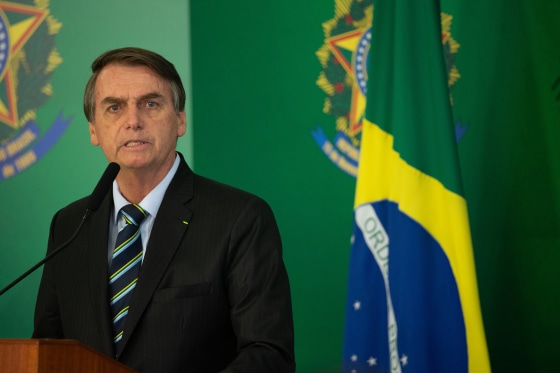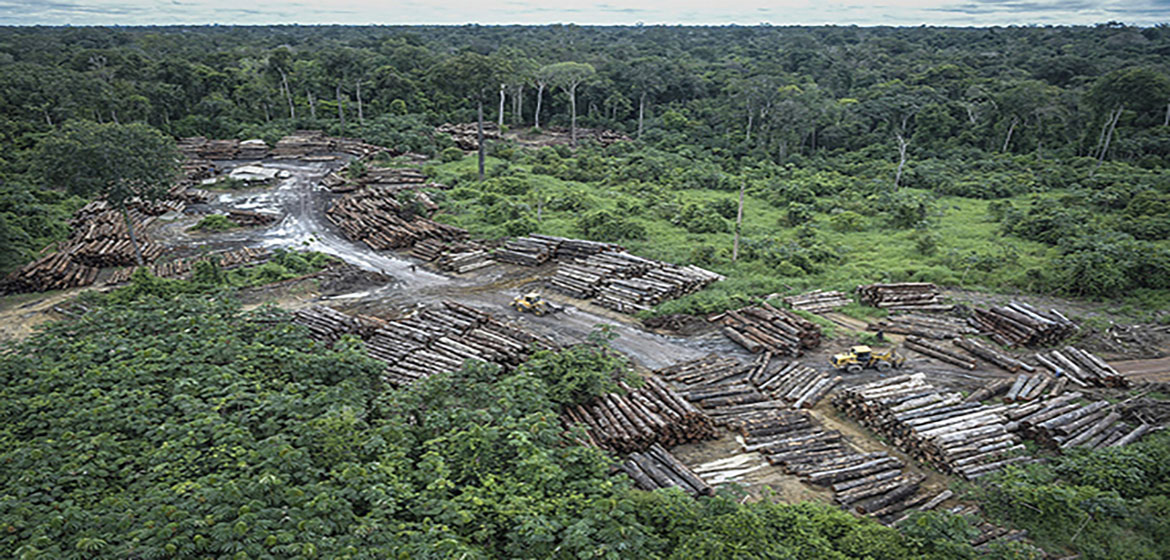President Jair Bolsonaro is considering changing who oversees Brazil's environmental policy. It may lead to less oversight of the Amazon rainforest, activists say.
By Associated Press
The administration of President Jair Bolsonaro is considering a dramatic change in the council that oversees Brazil’s environmental policy, replacing a broad-based panel of independent voices with a small group of political appointees, according to documents obtained by The Associated Press.
Activists say they fear the move, which reflects Bolsonaro’s oft-stated , could lead that holds about 60 percent of the vast Amazon rainforest, which scientists see as crucial for efforts to slow global warming and for the world climate systems.
A policy roadmap drafted by Bolsonaro’s transition team before he took office Jan. 1 proposes a decree creating a “government council” to replace Brazil’s National Council of the Environment, which has almost 100 members, including representatives of independent environmental and business groups. The new body would consist of five presidential appointees plus Environment Minister Ricardo Salles, who is one of the authors of the plan.
The documents, first published by the Brazilian Climate Observatory environmental group, were obtained and verified by the AP.
Brazil’s Environment Ministry did not reply to a request for comment.
Part of the transition plan has already come into force. The country’s forestry service, aimed at promoting “knowledge, sustainable use and widening of forestry coverage,” was transferred to the Agriculture Ministry on Bolsonaro’s second day in office. On the same day, the Agriculture Ministry was given the power to determine the limits of indigenous lands, rather than Brazil’s official indigenous rights agency.
As a congressman and candidate, Bolsonaro often questioned the reality of climate change and cast environmental groups as foreign-influenced meddlers restraining Brazil’s economic growth by holding back mining and agriculture — stances that resemble those of U.S. President Donald Trump, who before taking office described the U.S. Environmental Protection Agency as a “disgrace” that largely should be dismantled.
The authors of Bolsonaro’s transition plan say the current Environment Council, known as CONAMA, is a “confusing” body that “acts emotionally, without due technique, being subjected to ideological interference.”

Brazilian President Jair Bolsonaro speaks with press at Palace Itamaraty on Feb. 28, 2019 in Bras?lia, Brazil.Andressa Anholete / Getty Images file
In another transition team document, lawyer Antonio Fernando Pinheiro Pedro argues that CONAMA’s decisions have led to “the emission of norms and standards that are far from reality.”
In an interview shortly after his election, Bolsonaro complained that it could sometimes take a decade to get an environmental license. “That will not continue,” he said.
While officials haven’t yet formally proposed the smaller council, there has already been increased friction over CONAMA. Security guards blocked alternate members of the council from joining the main meeting at a March 20 session in the capital of Brasilia, breaking a long tradition of wide-open debate in Brazil’s top environmental council.
Carlos Rittl, executive secretary of the Brazilian Climate Observatory, which includes several nonprofit groups, said he believes that chaotic meeting was “more evidence that the plan (for a smaller council) is indeed being implemented.”
“Deforestation ended 2018 on the rise. It is on the rise in 2019, but we haven’t heard a word from the minister about that. We have heard about limiting the access to civil society so we can’t have a fair discussion,” Rittl said.
Former Environment Minister Rubens Ricupero speculated the new administration may have delayed creating the new council due to public anger over the collapse of a mine dam near the city of Brumadinho in January that killed at least 223 people, with 70 still missing.
Source:
Related to SDG 15: Life on land and SDG 16: Peace, justice and strong institutions



